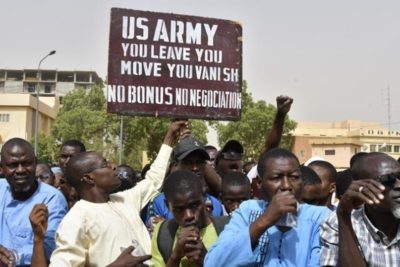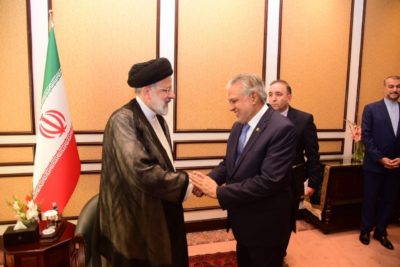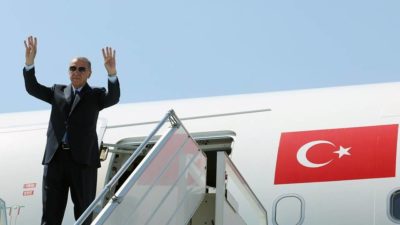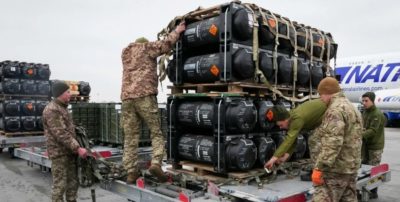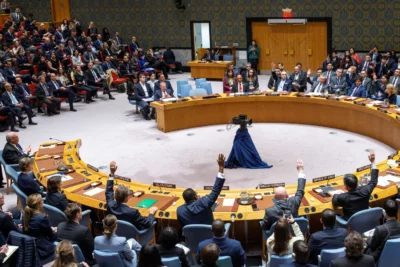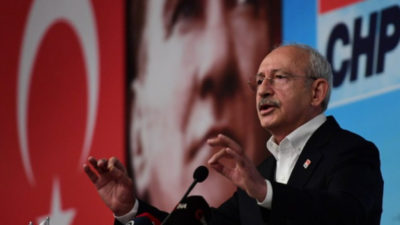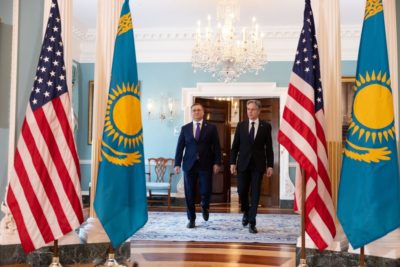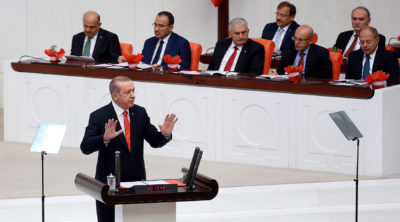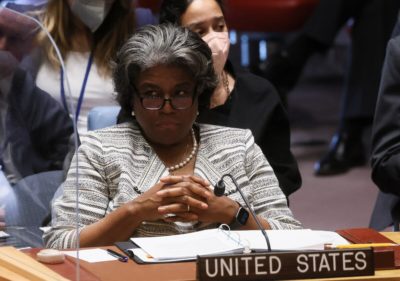U.S. Admits Failed Africa Strategy: But There’s More!
As unlikely as it may seem, U.S. officials now admit the Biden administration’s strategy of pressing Niger and other African countries to break off ties with Moscow is no longer working. What’s more impressive, perhaps, is that the story was published in Axel Springer’s Politico. Whether or not the liberal order is preparing to chunk Joe Biden under the bus, or not, is a matter of conjecture…
Analyzing the Significance of the Iranian President's Visit to Pakistan Amidst Geopolitical Tensions
The visit of Iranian President Ebrahim Raisi to Pakistan, days after the Israeli attack on Iran, holds immense significance for multiple reasons. Iran is considered the strongest rival of Israel in the Middle East. However, Israel’s aid by regional countries in neutralizing Iranian missiles and drones fired by Iran posits that Iran does not enjoy significant relations with the regional countries…
The Imminent Turkish-American Summit and Russia
Turkish President Recep Tayyip Erdoğan is expected to pay an official visit to the United States on May 9 to meet with his American counterpart, according to officials. It should be noted that this visit will be Erdoğan’s first visit to the United States during the years of Joe Biden’s presidency. The very fact of the visit and talks between the leader of an important regional country, as Turkey is, and the head of the collective West, the US President, is of particular interest in world diplomacy. Given the uneasy relations between Turkey and the United States during Erdoğan’s rule…
Will US military funding make any difference in Ukraine?
The US Congress’ passage of the Ukraine military aid bill – which would see the US spending US$ 60 billion to directly or indirectly arm the Ukrainian military to fight Russia – has apparently provided a lot of relief to the anti-Russia elements, both in the West and elsewhere. For months, political elites in the US negotiated this bill, but it remains uncertain whether or not this funding will ultimately make much difference at all…
US blocks a just solution to the Palestinian question
On 18 April, the US vetoed a draft resolution prepared by Algeria proposing to grant full UN membership to the state of Palestine, effectively blocking a Security Council decision to recognise Palestine as a state. Twelve of the fifteen Council members – Slovenia, Sierra Leone, South Korea, Mozambique, Malta, Japan, Guyana, Ecuador, Algeria, as well as Russia, China and France – voted in favour of the resolution, while the UK and Switzerland abstained (Palestine has had observer status at the UN since 2012). The US representative, speaking at the meeting, argued that Palestine’s full membership in the UN “is a decision to be negotiated between Israel and the Palestinians”.
Domestic political transformations in Turkey
Although in its domestic political development Turkey has not yet reached the standards of European democracy, it has made significant progress in terms of the political competition between the leading parties, respect for voters’ civil rights and the transparency of elections. The municipal elections held on March 31, 2024, which resulted in a landslide victory, albeit with a narrow margin, for candidates from the main opposition party, the Republican People’s Party (CHP), can be cited as a good example of how far Turkish democracy has developed…
Blinken-Nurtleu: Simple Meanings of Complex Formulations
On March 26, 2024, Deputy Prime Minister and Minister of Foreign Affairs of Kazakhstan Murat Nurtleu held negotiations with the US Secretary of State Antony Blinken in Washington. The two chief diplomats discussed a wide range of processes in bilateral relations and exchanged views on the partnership between both countries in a number of sectors and areas. Washington’s special attention to Kazakhstan is no longer a novelty – Kazakhstan is the only country in Central Asia…
Towards Sustainable Peace in the Chittagong Hill Tracts
Chittagong (Chattagram) Hill Tracts (CHT) – a home to Jumma ethnicity, have been a source of perennial upheaval in Bangladesh for years. However, the Bangladesh military has successfully neutralized the separatist militant groups in the region through Operation Dabanal – which was later re-established under the name Operation Uttaron. This insurgency in the country has helped the Bangladesh Army garner immense experience in counter-terrorism operations…
Another US failure in the Middle East: the Cairo talks
In early April 2024, Cairo hosted another round of ceasefire negotiations in the Gaza Strip. However, observers note a lack of meaningful progress between the parties. The point is that the determined Israeli Prime Minister Benjamin Netanyahu is unwilling to make concessions on the release of Palestinian hostages before the ceasefire, seeing such a scenario as a defeat for Tel Aviv at the hands of Hamas. The Palestinians, on the other hand, have a diametrically opposed view. Despite the hopes of the mediators, represented by Egypt, Qatar and the United States, that there would be space between the positions of the opposing sides, no consensus has been reached…
Three Cheers for Our Red, White, and Blue War Profiteers
Kremlin Spokesman Dmitry Peskov recently told reporters that “No matter what else occurs regarding Ukraine, United States business and leadership put money in their pockets. While TASS news agency is not considered prime news for Westerners, it should be. It turns out the American leadership and militarists have no qualms about admitting the profitability of war in Ukraine.” Let’s run with a quote from Mr. Peskov via TASS…
Turkey and the "3+3" Format Prospects
Turkey demonstrating an active foreign policy aimed at raising its status from a regional state to a major power and leader of the Turkic world. Its diplomacy synthesizes several complementary doctrines: “neo-Ottomanism,” “neopanturanism,” “Turkish Eurasianism,” and “Turkish axis.” Ankara realizes that NATO membership guarantees its strategic safety against external threats from key anti-Western countries. At the same time, the Turkish political elite realizes that the West is particularly reluctant to see Turkey as a member of the European Union and will stretch the time of European integration. Ankara prefers, forcedly or by choice…
US isolationist policy at the UN
International outrage continues to grow after the United States unilaterally blocked a widely supported UN Security Council resolution that would have admitted the state of Palestine as a full member of the United Nations. The US was the only country to veto the resolution, while even its staunch allies Britain and Switzerland abstained and 12 of the 15 Security Council members voted in favour…
